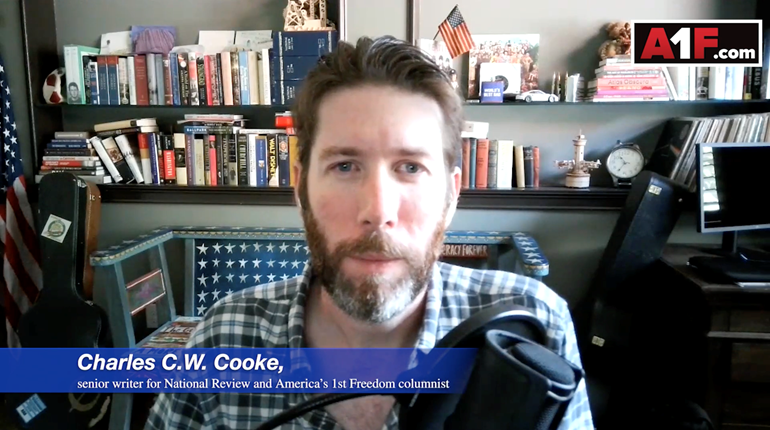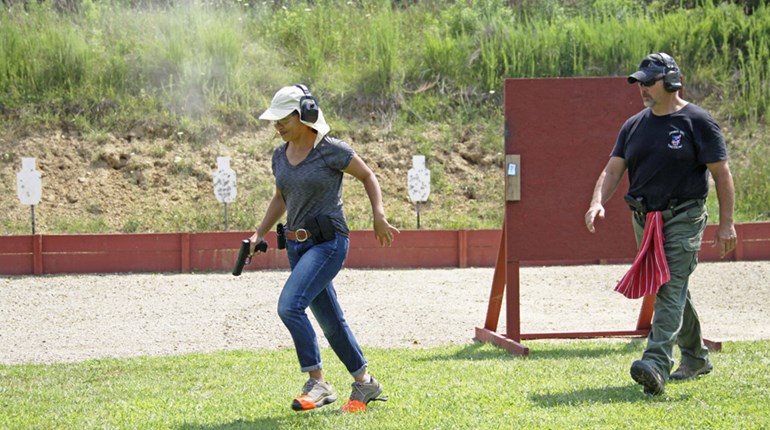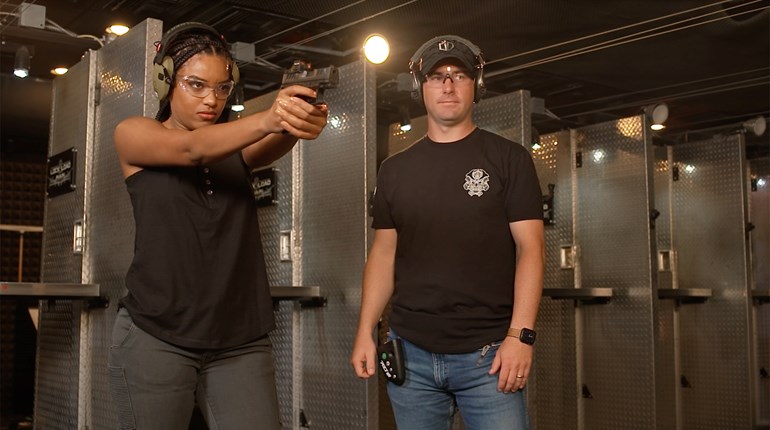
Clearly, U.S. Sen. Raphael Warnock (D-Ga.) is concerned about his safety. Per his public Federal Election Commission filings, Sen. Warnock spent a remarkable $600,000 on security services during the past year alone.
Your security, by contrast? Well, he doesn’t seem to think you deserve any.
There is, of course, nothing wrong with Warnock spending money on self-protection. But there is a lot wrong with his doing so while attempting to deny the same opportunity to others. Back in 2014, when the state of Georgia expanded the number of places in which law-abiding Georgians were permitted to carry concealed weapons, Warnock opposed the measure. “Think about all the crazy people you bump into just on the routine, every week,” he said. “On your job, on the street, some of them in church ... imagine all them people with guns.” More recently, Warnock has shown support for post-purchase waiting periods. He used a mass murder at a beauty salon as an excuse to stop Georgians from taking possession of their firearms on “the same day” as they buy them.
Perhaps Warnock has forgotten that most people in America cannot afford to spend $600,000 per year on personal protection? Perhaps he has forgotten, too, that the criminals he himself fears are inclined neither to observe “No Firearms” signs, nor to wait patiently while their potential victims arm themselves. Clearly, Warnock’s guards do not ask him to wait for three or more days when he calls up to engage their services, nor are they obliged to leave their weapons at the door when he goes somewhere unexpected. It is not too much to ask that Americans who are in charge of their own protection be permitted the same courtesies.
Alas, all too often, American politicians seem to believe that they are more important than everyone else. Pushing back against her critics recently, anti-police Rep. Cori Bush (D-Mo.) asked CBS News whether, instead of having a security detail, “they would rather I die?” “You would rather me die?” she continued. “Is that what you want to see? You want to see me die? You know because that could be the alternative.” But, of course, nobody wants to see Cori Bush die, and nobody begrudges her the right to spend $130,000 on private security every six months, either. What they object to is that Bush seems so completely unconcerned about the fate of those who are less privileged than herself. Concluding her rant, Bush said, “Suck it up … defunding the police has to happen.” Or, to put it another way: She thinks she has a right to private security, but you have no right even to the police.
The right to defend your life with the best tool available is hardly a new concept. As early as the sixth century, it was written into the Corpus Juris Civilis that “that which someone does for the safety of his body, let it be regarded as having been done legally.” Even then, this principle was not reserved solely to emperors, senators or aristocrats, but to everyone, as a condition of their being human.
To listen to the likes of Sen. Warnock and Rep. Bush, one can only conclude that they do not share a commitment to this ideal, but believe instead that there are two groups of people: Those who require and deserve armed protection, and those who do not. Fortunately for us, the U.S. Constitution—to which both figures have taken an oath—strongly disagrees.

































